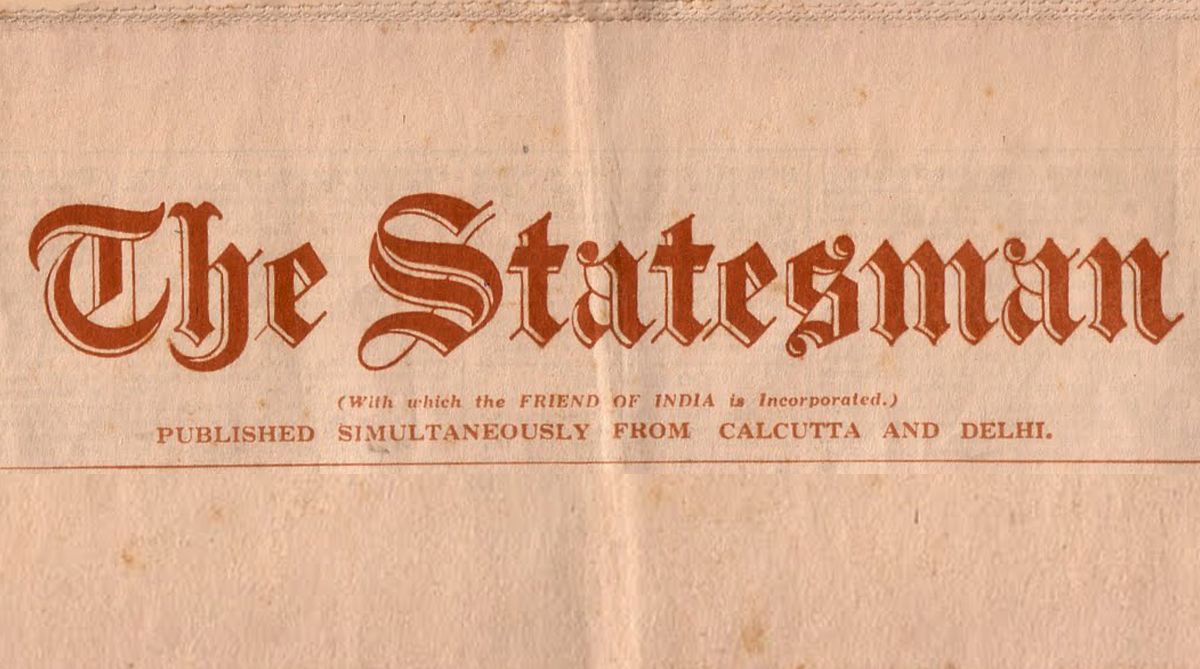A HAPPY JOURNEY
This evening it was about honoring those who made it possible for the oldest English daily to host its most prized annual celebration of heritage, the Vintage Car Rally, which enters its 53rd year this year.
On this day a century ago, these were some of the news items The Statesman readers got to read about India and the world.

OCCASIONAL NOTE
We have often been told that Germany will be, or has already been, so hopelessly ruined by the war that she will find herself hard put to it to compensate Belgium, Serbia, Poland and Northern France for the crimes which she has committed against them, and as for any of the other Allies getting anything out of her after these absolutely indispensable claims have been met, that is quite out of the question.
It is refreshing to learn, on the authority of “Politicus,” writing in the Fortnightly Review, that Germany is in the fortunate position of being able to compensate the whole of the Allies in full for all the expenditure to which she has put them.
Advertisement
Her total wealth this writer estimates at 237,678 millions sterling, of which 211,678 millions is represented by coal, one thousand millions by iron ore, and 25,000 millions by potash salts.
All that France, Great Britain, Italy and America require to do, therefore, in order to recoup themselves for their outlay, will be either to exploit these gigantic resources themselves, or cause Germany to exploit them under a heavy royalty to be paid yearly or half-yearly before she is permitted to work them in her own interests.
In addition to the material satisfaction accruing to the Allies who have had to foot the bill for the fighting, this solution will also provide the moral satisfaction which the Mikado in Sir William Gilbert’s play experienced when he had succeeded in making the punishment fit the crime.
POLITICAL MURDER CASE
When the further hearing of the political murder case against Sushil Chandra Lahiri, a Bengali graduate, was resumed this morning, Mr. Ross Alston continued his examination of Sub-Inspector Nazim Ali.
Witness said he was present at the time accused was arrested. At the time of the arrest he seized two revolvers and 219 Mauser cartridges. The revolvers and cartridges were tied up in a bundle.
When the house in which accused was living was about to be entered he fled by jumping on to the roof at the back of his house. He was seen dropping a bundle while jumping from one roof to another.
Witness found a clinical thermometer on the person of the accused. At the time of his arrest accused gave his name as Ram Charan Kayasth of Agra. Cross-examined, witness said accused was photographed the day after his arrest.
They were received, so far as he knew, by Mr. Hamilton, Superintendent of Police. He began to look out for the accused at the instance of Mr. Sands about a week after the murder.
Re-examined, witness said he had nothing to do with the photographing of the accused. Several formal witnesses were examined and the Court rose for the day.
LOANS TO CHINA
The State Department announces a new policy of approving of loans by American bankers to China in connection with the contemplated loan. It is understood that the amount is fifty million dollars.
Under an agreement between the bankers and the State Department the bankers will co-operate with the Government, submitting for approval the names of bankers composing the loan groups.
The department also announces that it is hoped that British, Japanese and French bankers will be associated with the loan and that negotiations for such co-operation are now in progress.
Mr. Polk, acting Secretary of State, in a formal statement says the engagements of the United States hitherto in the European war theatre have prevented specific steps to help China to realise her desire to equip herself for war against the Central Powers. Mr. Polk hopes that the co-operation of the British and other allies will serve as an agency of expansion of their mutual interests abroad.
PREMIER’S STATEMENT
The Times states that the Prime Minister made an important statement on the economic policy of the Government at the House of Commons yesterday to a deputation of two hundred manufacturers who were introduced by Sir Edward Carson.
It is understood that Mr. Lloyd George made it plain that Imperial preference had come to stay and that only by Imperial preference could Great Britain be assured of the first call on the raw material of the Dominions.
Another aspect of trade policy on which the Prime Minister insisted was that the Government would have to see that our essential industries were strengthened and protected, and he also emphasised the fact that the longer the war lasted the more unfavourable would be the economic terms that Germany would obtain.
Advertisement